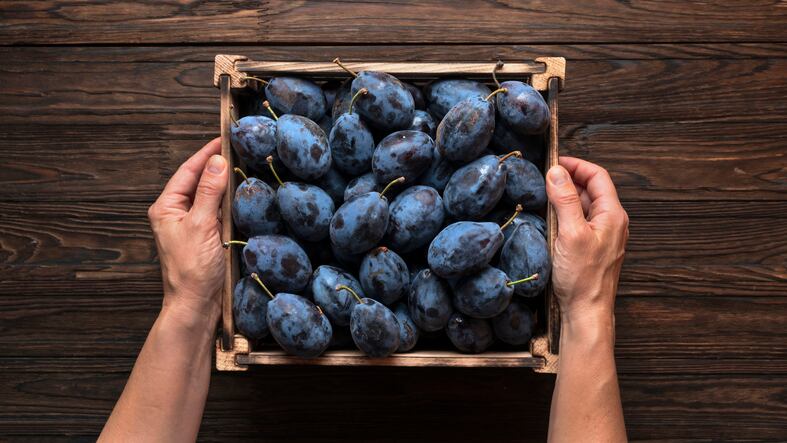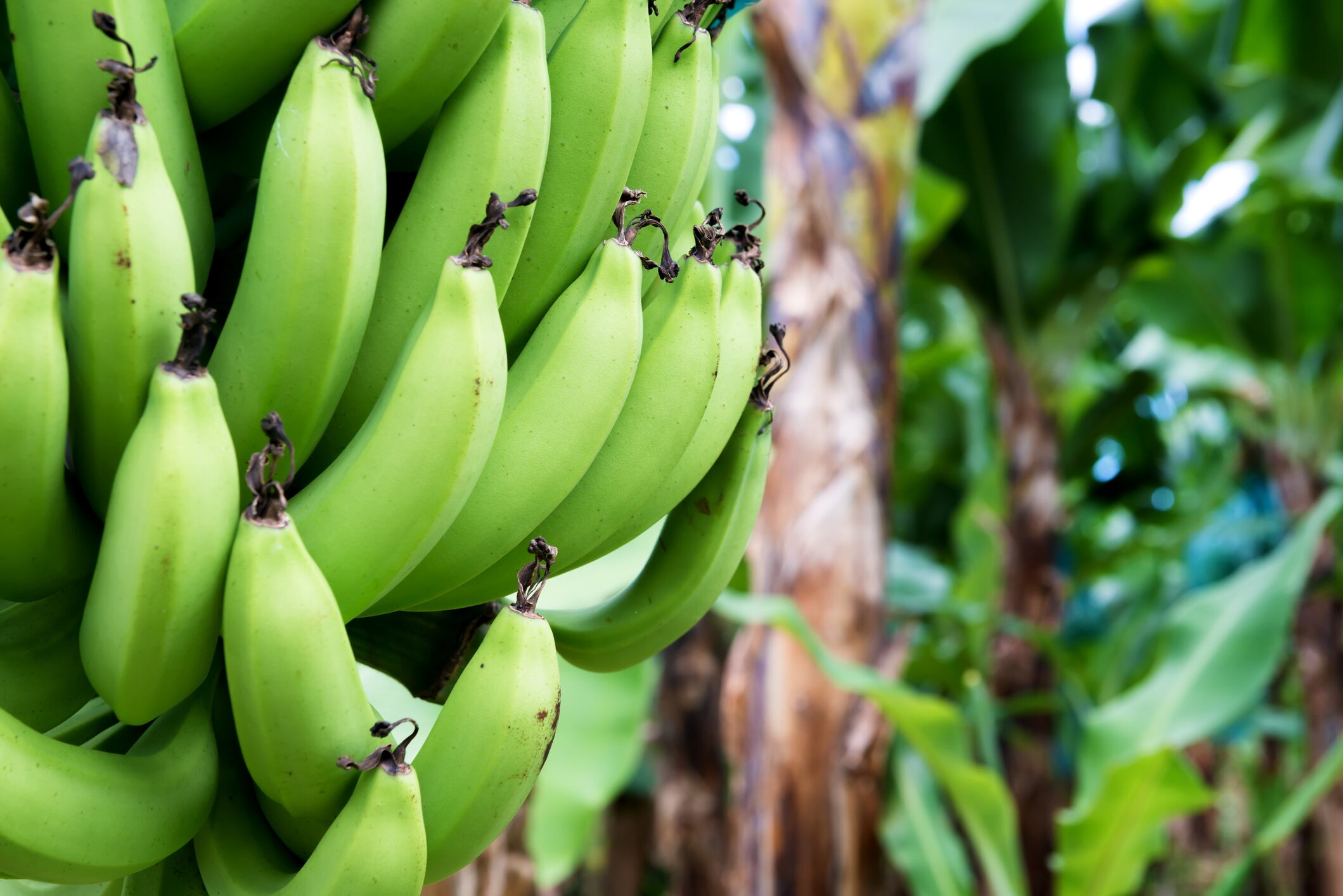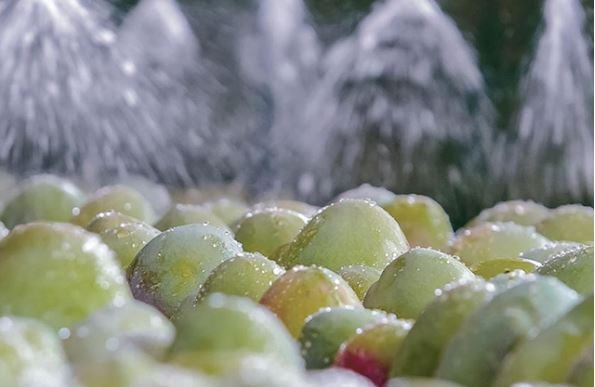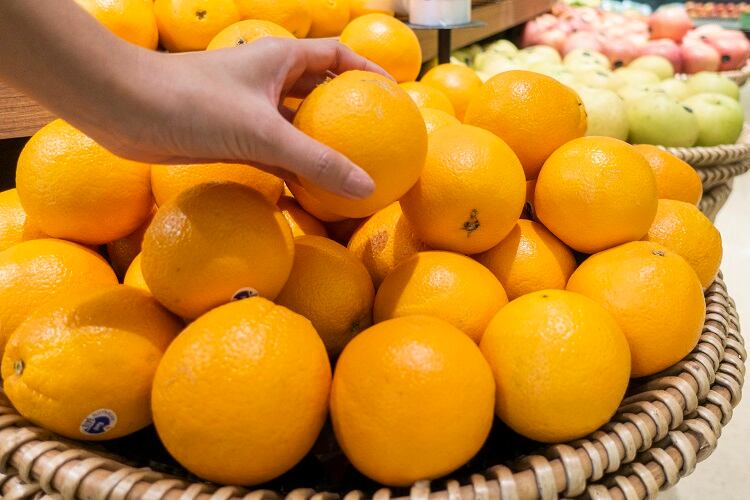The company, which was co-founded in 2016 by biochemical engineer Francisco Palma, claims the shelf-life of fruit is extended by 40% compared to fruit without any coating at all, which is on a par with synthetic coatings.
“It works like a second skin for apples, stone fruit, and citrus fruit," CEO of the Santiago-headquartered start-up Jordi Constans said. “It’s basically vegetable extracts mixed and emulsified in water. Our ingredients are just vegetable extracts, that are all present in the actual skin of fruit.”
“We also have one important ingredient extracted from quinoa […] that works because of its emulsifying properties. In the region we have a strong relationship with the quinoa crop, which is native to the Andes,” he added.
The biopolymer coating, called Shel-Life, is available for apples, stone fruit such as peaches and plums, and, most recently, citrus fruit, which launched last October. The company offers versions for both organic and non-organic produce - the latter has sodium benzoate added as a preservative which is prohibited under organic rules – and it is in the process of developing coatings for fruit such as avocado, blueberries, and cherries.
Shel-Life is currently being used to coat between 15,000 and 20,000 tons of fruit each year and by the end of 2020, its Chilean manufacturer PolyNatural aims to reach 25,000 tons.
'Eat fruit, not chemicals'
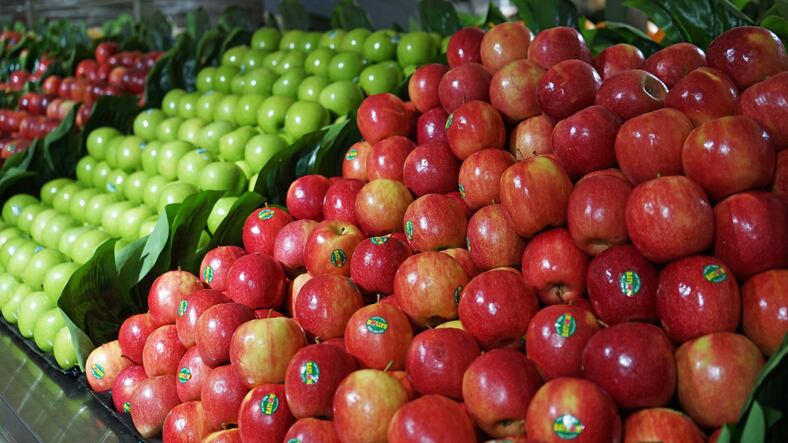
While the coating does not replicate the shine of chemical coatings for products such as apples, this was not a priority for PolyNatural, according to Constans.
“Our focus is not on the shine, our focus is to improve quality of produce, and to talk about that,” he told FoodNavigator-LATAM. “It’s important to know that Shel-Life is [answering] a global trend. It’s not just a product for premium markets. In our opinion, the world is day-to-day, year-to-year becoming more conscious about what we are eating and this is our crusade. We’re saying, ‘let’s eat fresh fruit that is just natural fruit. Let’s not eat chemicals’.”
The ingredient is added to fresh produce post-harvest before the packing stage. Constans said that, once PolyNatural had finetuned the coating’s formulation, one of the biggest R&D challenges it faced was ensuring the solution was ‘plug and play’.
As Shel-Life is sold as a pre-mixed emulsion, producers do not need to dilute it before use and can simply wash their processing line to remove previously used chemicals before adding it in.
Polynatural has identified its home market of Chile as having the most potential as well as neighboring Argentina where it has applied to the food regulatory authority, SENASA, for approval.
However, it has already met with interested producers in Europe, particularly Spain and Italy for citrus fruit and Poland for apples, while South Africa, New Zealand, and Australia could be lucrative markets in the long-term, Constans added.

